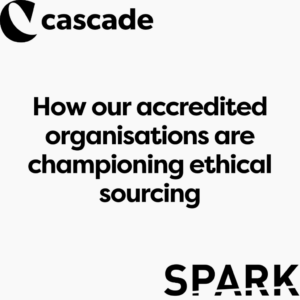
Ethical Sourcing
Why Ethical Sourcing Matters
Millions of people around the world endure inadequate, sometimes shocking, conditions at work. If we accept this within our supply chains we are contributing to the problem.
Even within the UK, modern slavery exists, which we all need to be alert to in domestic supply chains. There is an opportunity to deepen impact by favouring suppliers who are able to accredit with the GBC and have therefore committed to the ETI’s Base Code.
Ethical Sourcing In Practice
Case study: How our accredited organisations are championing ethical sourcing
Resources
Our Stance On – Leverage
There is an established principle of leverage in due diligence, which reduces your responsibility, the less you consume. If an organisation does not buy very much, it would be disproportionate to expect them to spend as much time checking suppliers, as we would expect a large, trading organisation to. Every organisation should still do something – we recommend a modern slavery act statement which outlines the steps it takes to avoid human rights abuse in its services and supplies. With agency staff, which can be an area of risk, we would recommend an organisation speaks to companies they use for labour supply, and asks for their policies on ethical practices and avoiding abuse.


